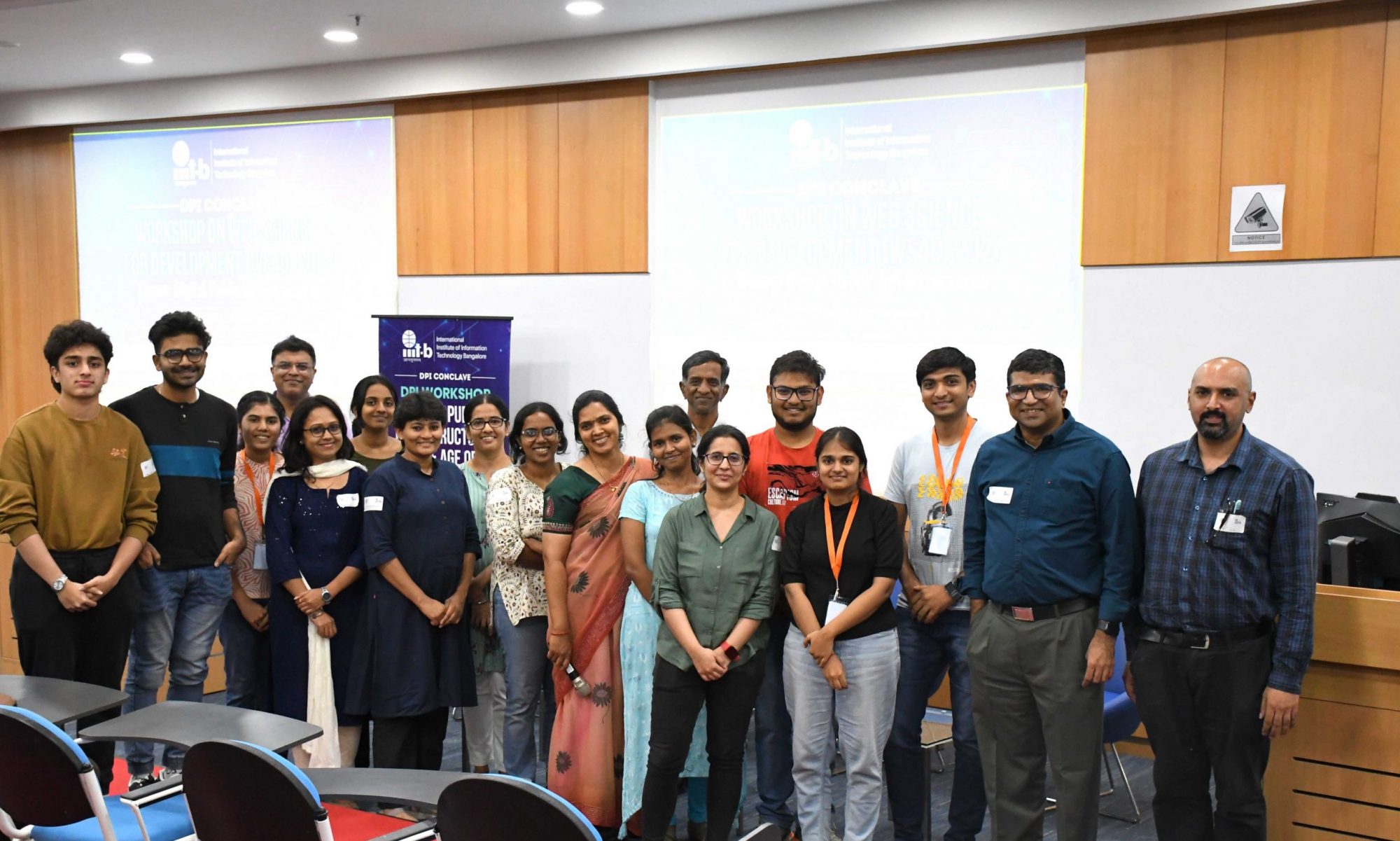Workshop on Web Science for Development
IIIT-Bangalore, 17-18 Mar 2023
WS4D 2023 Registration: Link
[wpdevart_countdown text_for_day=”Days” text_for_hour=”Hours” text_for_minut=”Minutes” text_for_second=”Seconds” countdown_end_type=”date” end_date=”17-03-2023 05:30″ start_time=”1580799635″ end_time=”0,1,1″ action_end_time=”hide” content_position=”center” top_ditance=”10″ bottom_distance=”10″ countdown_type=”button” font_color=”#000000″ button_bg_color=”#3DA8CC” circle_size=”130″ circle_border=”5″ border_radius=”8″ font_size=”30″ countdown_font_famaly=”monospace” animation_type=””][/wpdevart_countdown]The Web Science for Development (WS4D 2023) workshop is part of the web science research initiative at IIIT Bangalore. WS4D, started in 2019 brings together professionals from several domains, addressing different thematic concerns pertaining to the use of web and mobile technologies in developmental efforts. The theme of this year’s WS4D workshop is sustainable development and digital capabilities.
Prof. Dame Wendy Hall, Executive Director of the Web Science Institute at the University of Southampton will deliver the keynote address and IITB Silver Jubilee Lecture on the first day. On the second day, Prof. Noshir Contractor, Jane S. & William J. White Professor of Behavioral Sciences (McCormick, SoC, Kellogg) will be delivering the keynote address.
WS4D 2023 is organised as a two day event between March 17-18 2023. The workshop features invited talks by visiting researchers from the Web Science Trust (WSTNet) and other invitees from other parts of India. The workshop would also involve tutorial sessions and research colloquium for the research scholars. Interactive sessions and panel discussions are also planned over the two days.
The aim of the workshop is to foster a community of practitioners, researchers, entrepreneurs, students, and policy makers to jointly address socially relevant opportunities and challenges from the web and mobile technologies.
Agenda
Day 1: March 17th, 2023
| Time | Details |
|---|---|
| 0930-1000 | Tea and Registration |
| 1000-1015 | Inauguration and Address by Prof. Debabrata Das |
| 1015-1115 | Keynote 1 and IIITB Silver Jubilee Lecture – Prof. Wendy Hall Title: Four Internets: Data, Geopolitics and the Governance of Cyberspace |
| 1115-1130 | Tea Break |
| 1130-1200 | The Applications of Generative AI – IT industry perspectives by Dr. Archisman |
| 1200-1230 | Preserving Narrative Diversity on the Web by Prof. Srinath |
| 1230-1400 | Lunch Break |
| 1400-1430 | What will it take for democratic innovation and data science / AI to positively reinforce one another? by Prof. Matt Ryan |
| 1430-1500 | Recovering Food Narratives and Reimagining Health by Prof. Janaki and Ms. Sudha Nagavarapu |
| 1500-1530 | Smart City IoT systems and Ethics by Dr. Vinay Reddy |
| 1530-1545 | Tea Break |
| 1545-1700 | 1-Day PM Activity & Presentations [Activity Details] |
| 1700 -1730 | High Tea and Closing |
Day 2: March 18th, 2023
| Time | Details |
|---|---|
| 1000-1015 | Address by Prof. Srinath Srinivasa |
| 1015-1115 | Keynote 2 – Prof. Noshir Contractor People Analytics: Using Digital Exhaust from the Web to Leverage Network Insights in the Algorithmically Infused Workplace |
| 1115-1130 | Tea Break |
| 1130-1200 | Are Models Trained on Indian Legal Data Fair? by Prof. Ravindran |
| 1200-1230 | Towards decentralised webs by Dr. TB Dinesh |
| 1245-1400 | Lunch Break |
| 1400-1515 | Research Scholars Colloquium [Paramita, Meera, Apurva, Pooja, Jayati] |
| 1515-1545 | Tea Break |
| 1545-1645 | Panel Discussion – Characterizing the Swing State of the Internet Prof. Wendy, Prof. Noshir, TB Dinesh, Prof. Bidisha, Prof. Srinath (Moderator) |
| 1645 -1700 | Vote of Thanks and Closing Remarks |
| 1700 -1730 | High Tea |
Talk and Speaker Details
Prof. Dame Wendy Hall
Title: Four Internets: Data, Geopolitics and the Governance of Cyberspace.
Abstract: There is no doubt that the world is very dependent on the Internet these days. If it wasn’t obvious before, we certainly realised our dependency during the Covid-19 pandemic. Also, when the whole world piled onto the Internet in order to do anything during the lockdowns, it stayed up and running which is a huge testament to the foresight of the Internet pioneers in terms of its design and in built resilience and scalability. But the Internet has never been under such threat and it’s whole future as a globally interconnected system is in much doubt for many different reasons. In this talk we will explore the future of the Internet through the perspective of geopolitics and data governance. We will argue that through this lens we see at least four internets, maybe more, rather than just one interconnected ecosystem. We will explore what aspects of the governance of cyberspace we must protect the most in order for us to continue to use the technical infrastructure of the Internet that we all rely on to support cloud and data services. https://www.southampton.ac.uk/wsi/research/four-internets.page
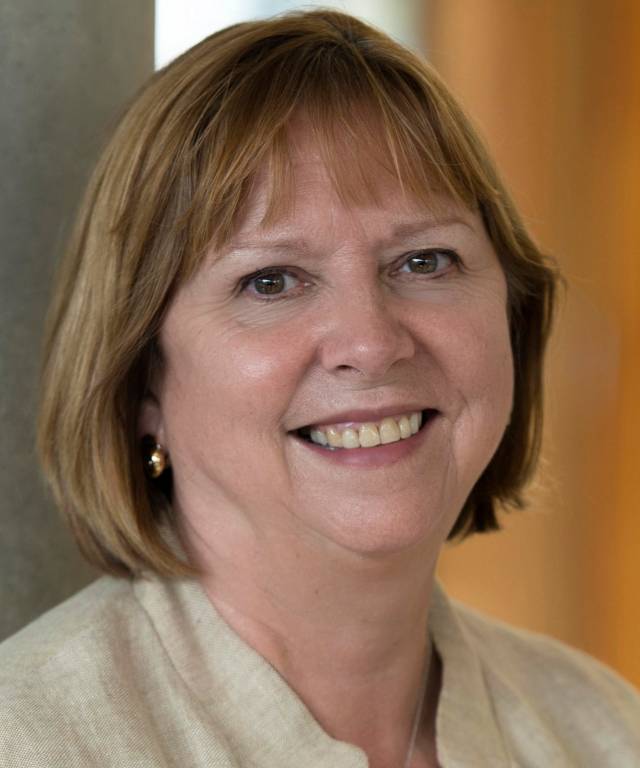
Dame Wendy Hall, DBE, FRS, FREng is Regius Professor of Computer Science, Associate Vice President (International Engagement), and is an Executive Director of the Web Science Institute at the University of Southampton. One of the first computer scientists to undertake serious research in multimedia and hypermedia, she has been at its forefront ever since. The influence of her work has been significant in many areas including digital libraries, the development of the Semantic Web, and the emerging research discipline of Web Science. She is well known for her development of the Microcosm hypermedia system in the mid-1980s, which was a forerunner to the World Wide Web.
In addition to playing a prominent role in the development of her subject, she also helps shape science and engineering policy and education. Through her leadership roles on national and international bodies, she has shattered many glass ceilings, readily deploying her position on numerous national and international bodies to promote the role of women in SET and acting as an important role model for others. With Sir Tim Berners-Lee and Sir Nigel Shadbolt she co-founded the Web Science Research Initiative in 2006 and is the Managing Director of the Web Science Trust, which has a global mission to support the development of research, education and thought leadership in Web Science. She became a Dame Commander of the British Empire in the 2009 UK New Year’s Honours list and is a Fellow of the Royal Society. Many of Wendy’s previous roles include: President of the ACM, President of BCS, Senior Vice President of the Royal Academy of Engineering, a member of the UK Prime Minister’s Council for Science and Technology, was a founding member of the European Research Council and Chair of the European Commission’s ISTAG, was a member of the Global Commission on Internet Governance, and was a member of the World Economic Forum’s Global Futures Council on the Digital Economy. Dame Wendy was co-Chair of the UK government’s Artificial Intelligence Review, which was published in October 2017, is the UK government’s first Skills Champion for AI and is a member of the newly formed AI Council. In May 2020, she was appointed Chair of the Ada Lovelace Institute and joined the BT Technology Advisory board in January 2021.
Prof. Noshir Contractor
Title: People Analytics: Using Digital Exhaust from the Web to Leverage Network Insights in the Algorithmically Infused Workplace
Abstract: Organizations need to do more than analyze data on demographic attributes to bring the performance of people analytics in the algorithmically infused workplace up — and in line with the hype. We need to focus not only on who people are but also on who they know. The potential for social network analysis to identify “high potentials,” who has good ideas, who is influential, and what teams will get work done efficiently and effectively is well established based on decades of research. The challenge has been collecting network data via time-consuming surveys, which elicit low response rates, and have high obsolescence. This talk presents empirical examples ranging from corporate enterprises to simulated long-duration space exploration to demonstrate how we can leverage people analytics – and in particular relational analytics – to mine “digital exhaust”— data created by individuals every day in their digital transactions, such as e‐mails, chats, “likes,” “follows,” @mentions, and file collaboration— to address challenges they face with issues such as team assembly and team conflict.
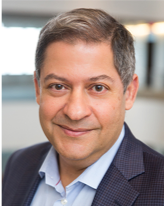
Noshir Contractor is the Jane S. & William J. White Professor of Behavioral Sciences in the McCormick School of Engineering & Applied Science, the School of Communication and the Kellogg School of Management and Director of the Science of Networks in Communities (SONIC) Research Group at Northwestern University. He is also the President of the International Communication Association (ICA). Additionally, he is the host of a podcast series titled “Untangling the Web,” where he engages in conversations with thought leaders to explore how the Web is shaping society, and how society in turns is shaping the Web.
Professor Contractor has been at the forefront of three emerging interdisciplines: network science, computational social science and web science. He is investigating how social and knowledge networks form – and perform – in contexts including business, scientific communities, healthcare and space travel. His research has been funded continuously for 25 years by the U.S. National Science Foundation with additional funding from the U.S. National Institutes of Health, NASA, DARPA, Army Research Laboratory and the Bill & Melinda Gates Foundation.
His book Theories of Communication Networks (co-authored with Peter Monge) received the 2003 Book of the Year award from the Organizational Communication Division of the National Communication Association and the 2021 Fellows Book Award from the International Communication Association (ICA). He is a Fellow of the American Association for the Advancement of Science (AAAS), the Association for Computing Machinery (ACM), the Network Science Society, and the International Communication Association (ICA). He also received the Distinguished Scholar Award from the National Communication Association, the Lifetime Service Award from the Communication, Digital Technology, & Organization Division of the Academy of Management, and the Simmel Award from the International Network for Social Network Analysis (INSNA). In 2018 he received the Distinguished Alumnus Award from the Indian Institute of Technology, Madras where he received a Bachelor’s in Electrical Engineering. He received his Ph.D. from the Annenberg School of Communication at the University of Southern California.
Dr. Archisman Majumdar
Title: The Applications of Generative AI – IT industry perspectives.
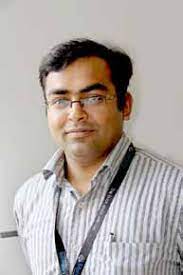
Archisman Majumdar is an assistant vice president and lead for applied AI at Mphasis Next Labs, where he conceptualizes, develops, and leads multiple products in the analytics R&D space. Archisman is responsible for the research, innovation, and go to market for the products and solutions. His areas of expertise are business analytics, machine learning, product management, and information systems research. He holds a PhD in quantitative methods and information systems from the Indian Institute of Management Bangalore (IIMB).
Dr. Mukund Raj
Title: Bite and Bight the byte
Abstract: Abundance of data creates opportunities and confrontation. There is a dire need for ToT in AI and explore technology leaps to provide sustainable solutions to real world complex issues by developing sustainable copute models.
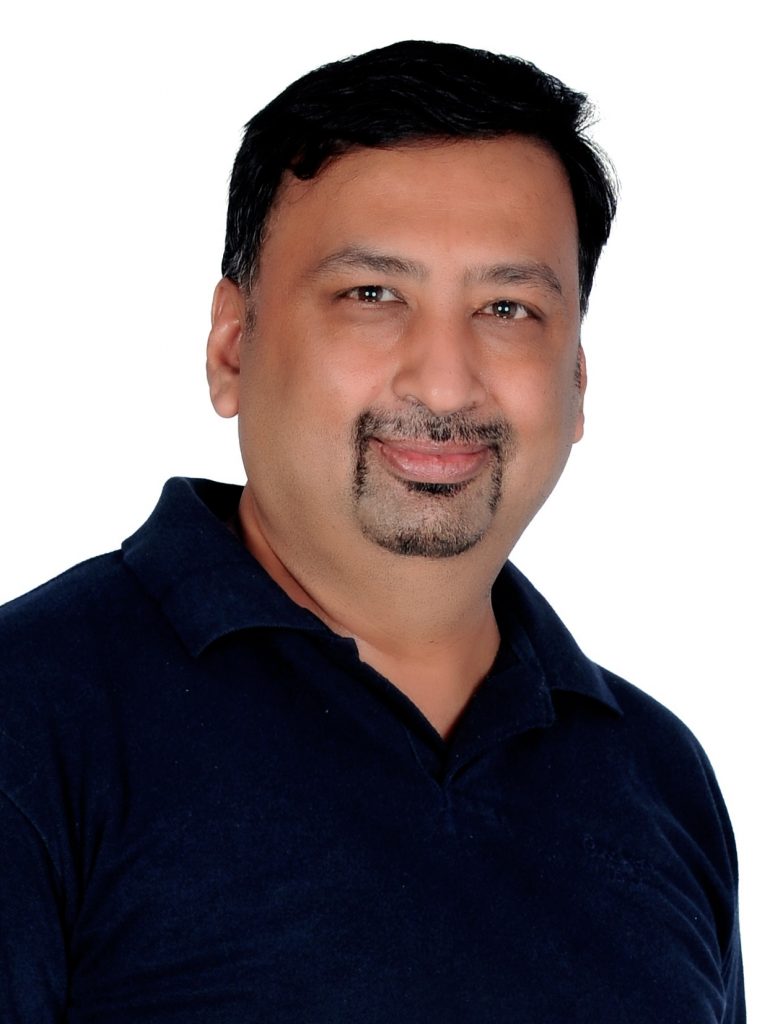
Currently, employed at United Nations Develop Program (UNDP) as Project Head for Sustainable Development Goals Coordination Center (SDGCC) Karnataka. He obtained his PhD in Economics from Rushmore University (2003), PGD In Cyber Security and Cyber Law from National Law University School University, Bengaluru (2019) (1998), Masters in Business Administration from Rushmore University (2001). His research lines are on the topics of agriculture, economy, technology and sustainable development. Having an international work experience of 14 years in technology and IT domains and also served as Chief Information/Security Officer.He has been Consultant IT at various departments for the Government of Karnataka – involved in various IT initiatives, Data analysis, and future technology initiatives.
Prof. Srinath Srinivasa
Title: Preserving Narrative Diversity on the Web
Abstract: The human mind is known to be a “story engine” where it interprets and operates within the framework of mental constructs called narratives. The web has added a new dimension to how narratives are diffused and consumed in social settings. In this talk we will look at the role of narratives in the way we interpret facts and the way we commit resources to action. We also address issues of clash of narratives and how it goes on to shape collective behaviour. We finally stress upon the importance of preserving narrative diversity in online discourses.
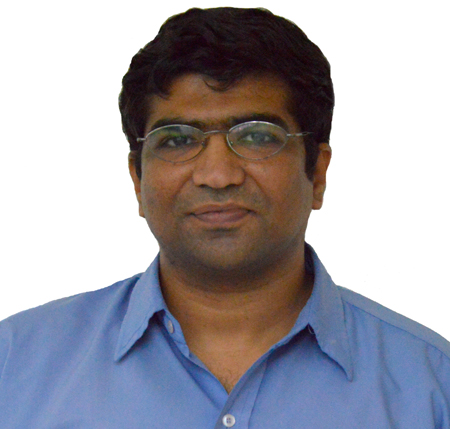
Srinath Srinivasa heads the Web Science lab and is the Dean (R&D) at IIIT Bangalore, India. Srinath holds a Ph.D (magna cum laude) from the Berlin Brandenburg Graduate School for Distributed Information Systems (GkVI) Germany, an M.S. (by Research) from IIT-Madras and B.E. in Computer Science and Engineering from The National Institute of Engineering (NIE) Mysore.
He works in the area of Web Science — that models of the impact of the web on humanity. Technology for educational outreach and social empowerment has been a primary motivation driving his research. He has participated in several initiatives for technology enhanced education including the VTU Edusat program, The National Programme for Technology Enhanced Learning (NPTEL) and an educational outreach program in collaboration with Upgrad. He is a member of various technical and organizational committees for international conferences like International Conference on Weblogs and Social Media (ICWSM), ACM Hypertext, COMAD/CoDS, ODBASE, etc. He is also a life member of the Computer Society of India (CSI). As part of academic community outreach, Srinath has served on the Board of Studies of Goa University and as a member of the Academic Council of the National Institute of Engineering, Mysore. He has served as a technical reviewer for various journals like the VLDB journal, IEEE Transactions on Knowledge and Data Engineering, and IEEE Transactions on Cloud Computing. He is also the recipient of various national and international grants for his research activities.
Prof. Matt Ryan
Title: What will it take for democratic innovation and data science/AI to positively reinforce one another?
Abstract: The explosion of AI and data science, and exploitation of a web-based data exhaust has raised several ethical concerns about how machines (intentionally or unintentionally) increase societal inequalities or oppress and destroy social goods. Though there have always been worries about design and especially the use of new technologies by undemocratic actors, until recently waves of democratisation seemed to proceed in mutualistic symbiosis with rapid technological advance. These appear to have stagnated and recent advances in AI have been portrayed more often as especially parasitic to democratic societies. In particular, changes in what information we access and how we communicate online have posed challenges for democratic politics, with increasing disaffection with politics, polarisation of views, mistrust and hate speech. Nevertheless new technologies also provide significant opportunities to aid democratic processes, innovating in who can be included in political discussion, and increasing civic activity online, often with transformative democratic outcomes. When and how should we use AI to buttress democracy, and aid informed, fair, inclusive, empowering and evidence-based reasoning? In this talk, I will offer some ideas about how socio-technical expertise can inform development of democratic norms by design, and how the power of novel computing technology can be harnessed to reinforce the most important technology humans have ever developed – that of solving their disputes peacefully.

Matthew Ryan is Associate Professor in Governance and Public Policy. His research on democratic innovations tries to figure out how people can have control over the decisions that affect their lives. His research crosses several disciplinary boundaries with a focus on innovative research methods. Since January 2020 he has been a UKRI Future Leaders Fellow leading the Rebooting Democracy project which aims to understand which innovations in public participation restore and sustain democracy.
He is Co-Director of the Centre for Democratic Futures, bringing together academics from across the University of Southampton who have an interest in how people make collective decisions both in the UK and internationally. Since January 2021 he has been Policy Director at the Web Science Institute an established world-leading institute dedicated to bringing socio-technical expertise to explore the development of the Web. Matt has expertise in fields related to data science and artificial intelligence and in October 2021 became a Turing Fellow collaborating and advancing research with the national Alan Turing Institute.
Prof. Janaki and Ms. Sudha Nagavarapu
Title: Recovering Food Narratives and Reimagining Health: Digital documentation of cultural practices around food, farming, dietary transitions and nutrition in western Avadh, Uttar Pradesh, India
Abstract: Digital technologies have been heralded for some time as having the potential to democratize the doing and consumption of historical research (Bolick 2006). On the one hand, material in a digital archive can be accessed from a wider range of locations, thereby potentially expanding the consumption of such research. But, as important, digital tools can help democratise history through “the inclusion of all histories” (Thomas 1999) by facilitating the collection and archiving of oral histories from diverse constituents. Our ongoing project, the foodcultures.org portal, is an attempt to build and leverage a digital repository towards these goals in the context of food histories in western Avadh, UP. By collecting and juxtaposing diverse narratives of diets, hunger, farming, and health in this region, we hope to build a rich repository that can be leveraged by students, researchers and policy makers alike towards a fuller understanding of the historical trajectory of a food production and consumption ecosystem.
Our project builds on a two-year, collaborative and multidisciplinary study (2017-18) conducted by Sangtin, a farmer-labourer collective in Sitapur district, Uttar Pradesh, and the Indian Institute of Technology Delhi, that documented historical and current diets, dietary and agricultural transitions and their drivers in the region, and people’s experiences of hunger and health using oral history interviews and archival research. The findings from this research were shared with academic audiences through seminars and publications (Kumar et al 2018, Nagavarapu et. al 2019). For the current project, this research team collaborated with IIIT-Bangalore and Design Beku to take these findings to several other audiences, including local residents at the one end and global audiences at the other. We see the juxtaposition of these diverse measures of food production and consumption trajectories in the region as one way for our knowledge on the historical trajectories of agriculture and nutrition in the region, and their linkages, to be expanded, critiqued and analysed. This, in turn, could shape more regionally-informed policymaking. It could also potentially contribute towards reshaping people’s dietary choices and improving their understanding of the linkages between food, farming and health. Finally, such a portal could also serve as a pedagogical tool for teaching about broader conceptual linkages as well as regional particularities of agricultural transformations. In this talk, we will walk you through the portal and our goals for it.
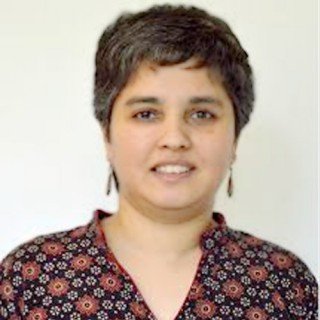
Janaki Srinivasan’s research examines the political economy of information technology-based development initiatives. She uses ethnographic research to examine how gender, caste and class shape the use of such technologies. Her work has explored these interests in the context of Indian digital inclusion initiatives focussed on community computer centres, mobile phones, identity systems and open information systems. Currently, she is exploring privacy, algorithmic control and the role of intermediaries in digital transactions, with an emphasis on the domains of financial inclusion and work automation. Janaki has a PhD in Information Management and Systems from UC Berkeley and Masters degrees in Physics and in Information Technology from IIT Delhi and IIIT Bangalore.
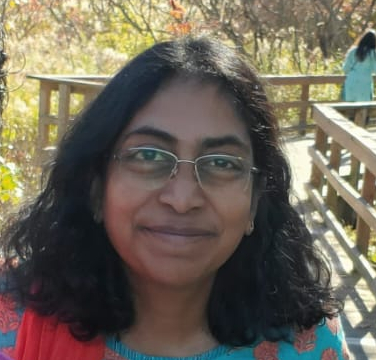
Sudha Nagavarapu supports grassroots organizations in India in the areas of food systems, sustainable agriculture, health, livelihoods and related issues. She has coordinated community-driven, collaborative research into maternal health, health systems, food cultures and agrarian histories, and is also involved in developing a portal at foodcultures.org. She works with Sangtin Kisan Mazdoor Sangathan (SKMS), Uttar Pradesh and various organizations and networks in Karnataka.
Dr. Vinay Reddy
Title: Smart City IoT systems and Ethics
Abstract: The talk explores following ethical dimensions – Justice and Equity, Trust, Fairness, Dignity of Life and Work – in Smart City IoT systems. To this end, we rely on the case study of an Integrated Command and Control Centre (ICCC), an IoT platform for Smart Cities in India; arrived based on interviews and literature review.
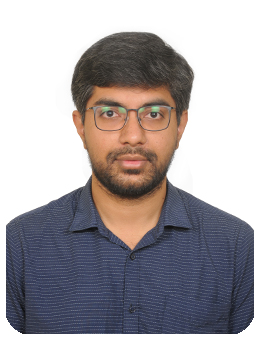
Dr. Vinay is working as a post-doctoral fellow in the Centre for Internet of Ethical Things (CIET), IIITB. He is currently involved in a project whose aim is to arrive at an ethical governance framework for public purpose IoT projects.
Education: B. Tech (EE) IIT Kharagpur M.S (Development Practice) TISS Mumbai PhD (Public Policy) IIM Bangalore.
Work Experience: Qualcomm Bangalore (2011 to 2014; 2016 to 2017) Prime Minister’s Rural Development Fellow (2014 to 2016). Research Interests: Emerging Technologies (AI, IoT, and Blockchain), Public Policy, and Information Systems.
Prof. Balaraman Ravindran
Title: Are Models Trained on Indian Legal Data Fair?
Abstract: Recent advances and applications of language technology and artificial intelligence have enabled intelligent automation across a wide variety of domains such as law, health care, FinTech, etc. Particularly for legal systems, AI based language models have recently been proposed to understand legal language and documents attempting to predict the judgment. While these models demonstrate acceptable performance on judgement prediction problems, they also carry encoded social biases learned from the training data. The concept of bias and fairness within machine learning models have been widely studied across NLP community, but most studies limit themselves to the Western contexts. In this work, we present an initial investigation of fairness and bias in language models designed to understand legal documents from the Indian perspective. We highlight the presence of learnt algorithmic biases in InLegalBERT, a language model finetuned on legal documents in the Indian context. We show that InLegalBERT shows stereotypical preference in the axes of disparities such as Religion, Caste & Gender and anti-stereotypical nature in the case of the Region axis of disparity. On average, the bias shown by InLegalBERT is around 12.55% higher compared to a standard BERT model. Additionally, we highlight the requirements of research in the direction of understanding bias in language models trained on Indian legal documents and its removal, which can potentially assist legal practitioners in future.
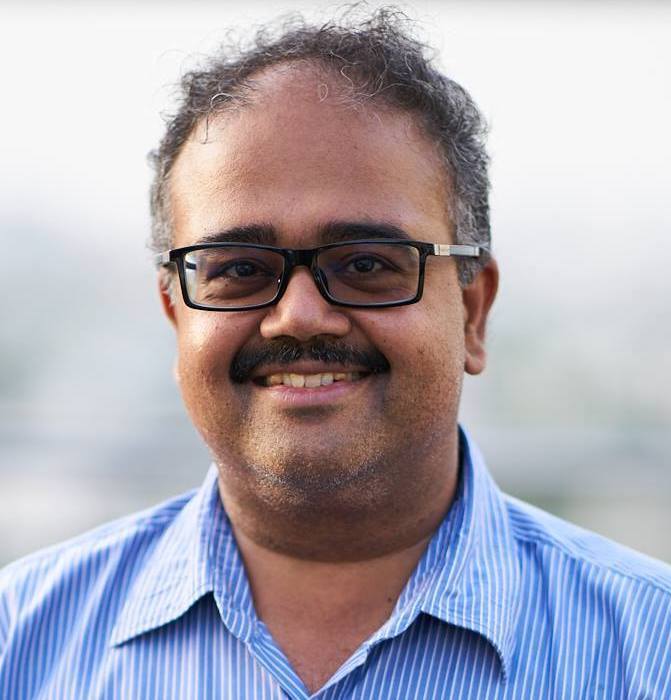
Professor B. Ravindran heads the Robert Bosch Centre for Data Science and Artificial Intelligence, a WSTNet laboratory, and the Centre for Responsible AI (CeRAI) at IIT Madras. He is the Mindtree Faculty Fellow and Professor in the Department of Computer Science and Engineering at IIT Madras. He has held visiting positions at the Indian Institute of Science, Bangalore, India, the University of Technology, Sydney, Australia and Google Research. Currently, his research interests are centred on learning from and through interactions and span the areas of geometric deep learning and reinforcement learning. He currently serves on the editorial boards of ACM Transactions on Intelligent Systems, Machine Learning Journal, Journal of AI Research, PLOS One, and Frontiers in Big Data and AI. He has published more than 100 papers in premier journals and conferences. His work with students has won multiple best paper awards, the most recent being the best application paper at PAKDD 2021. He was elected ACM Distinguished Member (2021) for his significant contributions to computing. He was recognized, in 2020, as a Senior member of AAAI (Association for Advancement of AI) for his long-standing contributions to AI.
Dr. TB Dinesh
Title: Towards decentralised webs
Abstract: We have been part of the COWMesh setup near Bangalore. COW – community owned wifimesh interconnects 4 villages to our rural research lab campus called iruWay. We are an internet-independent community network space with several services such as community radio, media sharing, media archival and fragment annotations, etc. Our goal is to be a “decentralised Web” setup where we become document centric rather than document location centric like the current web.
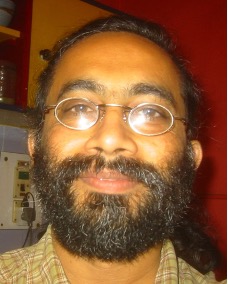
T B Dinesh is a community media activist with a background in Computer Science. The recent focus of his work is on storytelling methods and encouraging people from marginalised communities to tell their own stories and document their ways of life. T B Dinesh is a founder of Janastu in Bangalore, India. see open.janastu.org
Research Scholars Colloquium
Paramita Das
Title: Diversity matters: Robustness of bias measurements in Wikidata
Abstract: With the widespread use of knowledge graphs (KG) in various automated AI systems and applications, it is very important to ensure that information retrieval algorithms leveraging them are free from societal biases. Previous works have depicted biases that persist in KGs, as well as employed several metrics for measuring the biases. However, such studies lack in the systematic exploration of the sensitivity of the bias measurements, through varying sources of data, or the embedding algorithms used. To address this research gap, in this work, we present a holistic analysis of bias measurement on the knowledge graph. First, we attempt to reveal data biases that surface in Wikidata for thirteen different demographics selected from seven continents. Next, we attempt to unfold the variance in detecting biases by two different knowledge graph embedding algorithms – TransE and ComplEx. We conducted our extensive experiments on a large number of professions sampled from the thirteen demographics with respect to the sensitive attribute, i.e., gender. Our results show that the inherent data bias that persists in KG can be revised by specific algorithm bias as incorporated by KG embedding learning algorithms. Further, we show that the choice of the state-of-the-art KG embedding algorithm has a strong impact on the ranking of biased professions irrespective of gender. In particular, we find that the embedding algorithm ComplEx is more robust to the choice of demographics compared to TransE. Subsequently, we observe that the similarity of the biased professions across demographics is minimal which possibly reflects the socio-cultural differences around the globe. This is often overlooked by most of the coarse-grained approaches working at the aggregate level. We believe that this full-scale audit of the bias measurement pipeline will raise awareness among the community while deriving insights related to design choices of data and algorithms both and refrain from the popular dogma of “one-size-fits-all”.
Bio: I am pursuing my Ph.D. under the guidance of Prof. Animesh Mukherjee at the department of Computer Science and Engineering at IIT Kharagpur. My works are based on the state-of-the-art approaches of social computing, machine learning, and natural language processing. My research problems focus on quality issues of collaborative platforms, mostly Wikipedia, and human-curated societal biases that persist in a crowd-sourced system. Before joining Ph.D. I have completed my M. Tech in Computer Science and Engineering from IIEST Shibpur and B.Tech from Maulana Abul Kalam Azad University of Technology, West Bengal. Please find my list of publications here.
Meera Muthukrishnan
Title: COVID-19 data infrastructure in India: politics of knowing and governing the pandemic
Abstract: Most of the governmental and popular responses to the COVID-19 pandemic have been dominated by a data-driven approach. This means that different kinds of data available about the virus and its impact -ranging from positivity rate to mortality rate, from recovered cases to active cases- have not only shaped public health policies and government actions but also largely shaped our understanding of the global health crisis. Lack of data, lack of trust in data, counter-data practices- all have come to the fore of the public debate around the pandemic. Using a critical data studies lens to explore a series of Covid-19 datasets on and in India and how the data and socio-political response to the crisis co-constitute each other, we explore questions such as, what kind of data gets captured, who are the actors in setting up and maintaining this data infrastructure and who have access to such data infrastructure. Through the analysis, we bring to light the practices and politics around data infrastructures employed during the pandemic and have called for a more critical understanding of the claims of truth laid down by them.
Bio: Meera Muthukrishnan was a Software Professional for around 19 years delivering enterprise-scale software solutions, with a Bachelor and Masters degree in Computer Science, before she joined for the Master of Science by Research program in the IT and Society Department at IIIT, Bangalore in 2020. She is interested in the research and development of ICT projects at the intersection of technology and public services delivery. Many of her research projects have been in the area of public health care. She is interested in both qualitative and quantitative research to understand and develop methods to support design for inclusive and participatory development.
Apurva Kulkarni
Title: Ontology Augmented Data Lake System for SDGs
Abstract: Analytics of Big Data in the absence of an accompanying framework of metadata can be a quite daunting task. While it is true that statistical algorithms can do large-scale analyses on diverse data with little support from metadata, using such methods on widely dispersed, extremely diverse, and dynamic data may not necessarily produce trustworthy findings. One such task is identifying the impact of indicators for various Sustainable Development Goals (SDGs). One of the methods to analyze impact is by developing a Bayesian network for the policymaker to make informed decisions under uncertainty. It is of key interest to policy-makers worldwide to rely on such models to decide the new policies of a state or a country (https:// sdgs.un.org/2030agenda). The accuracy of the models can be improved by considering enriched data – often done by incorporating pertinent data from multiple sources. However, due to the challenges associated with volume, variety, veracity, and the structure of the data, traditional data lake systems fall short of identifying information that is syntactically diverse yet semantically connected. In this research work, we propose a Data Lake (DL) framework that targets ingesting & processing of data like any traditional DL, and in addition, is capable of performing data retrieval for applications such as Policy Support Systems (where the selection of data greatly affect the output interpretations) by using ontologies as the intermediary. This research work also targets to discuss the proof of concept and the preliminary results (IIITB Data Lake project Website link: http://cads.iiitb.ac.in/wordpress/) based on the data collected from the agriculture department of the Government of Karnataka (GoK).
Bio: Apurva Kulkarni is a PhD Research Scholar at IIIT-Bangalore. She is working under guidance of Prof. Chandrashekar Ramanathan in the field of Heterogeneous Data Modeling. Her interests include semantic based document retrieval system, semantic document linking, querying heterogeneous documents and database system. She holds a bachelor’s and a master’s degree from Mumbai university. She has 5 years of academic experience.
Pooja Bassin
Title: Intervention Modeling for Sustainable Development
Abstract: To solve numerous problems in social, economic and environmental domains, Sustainable Development Goals(SDGs) were adopted by the United Nations in 2015. SDGs with a new vision and many new challenges replaced the Millennium Development Goals(MDGs) that had a successful run from 2000-2015. The concept of SDG localization or domestication focuses on implementing locally-appropriate actions for achieving SDGs. We argue that this notion of localization requires conceptualization and a defined framework, currently, the lack of which hinders computational efforts towards representing and reasoning about sustainability. The talk will give a brief overview of some of the hermeneutic challenges encountered in our ongoing work on designing AI-based Policy Support System.
Bio: Pooja Bassin is a PhD candidate at the Web Science Lab (WSL), IIITB working under the supervision of Prof. Srinath Srinivasa. Her work involves constructing and representing intervention models based on Sustainable Development Goals with the application of the underlying principle of sustainability. Prior to undertaking her doctoral journey, she has worked as a Research Associate at the WSL and has been part of the Cogno Web Observatory project that involved understanding online social cognition that refers to the way social discourses lead to formation of collective worldviews. Her research interests include semantic web, network science, causal inference. She obtained her Master of Technology in Computer Science (2014) and Master of Computer Application degree (2011) from Banasthali Vidyapith, Jaipur. She has 4+ years of teaching experience at various degree colleges in Jaipur and Mumbai.
Jayati Deshmukh
Title: Responsible Agency and Sustainability
Abstract: In this talk, we will discuss about responsible agency, our proposed model of designing responsible autonomous agents, and finally we compare it with sustainability principles. In our agent design, rather than imposing constraints or external reinforcements, agents are endowed with an elastic “sense of self” or an elastic identity that they curate based on rational considerations. This approach is called “computational transcendence (CT).” We show that agents using this model make responsible choices i.e. choices for collective welfare instead of individual benefit. We demonstrate CT in the game theoretic context of Prisoners’ Dilemma. Finally, we discuss the similarity between the principles of CT and the principles of sustainability and show that our proposed CT framework is one way of designing responsible and sustainable autonomous agents.
Bio: Jayati Deshmukh is a Ph.D. research scholar at Web Science Lab, IIIT-Bangalore under the guidance of Prof. Srinath Srinivasa. Her research interests broadly lie in the area of artificial intelligence and specifically in autonomous systems, multi-agent systems, network science and game theory. She holds M.Tech. in Data Science from IIIT-Bangalore and B.E. in Computer Engineering from Gujarat Technological University. She is a gold-medalist in both undergraduate and graduate degrees. She has 4+ years of work experience at Accenture Technology Labs, Bangalore where she did research and development in the area of natural language processing, deep learning and knowledge graphs which resulted in many successful PoCs as well as patents and publications.
Acknowledgements

